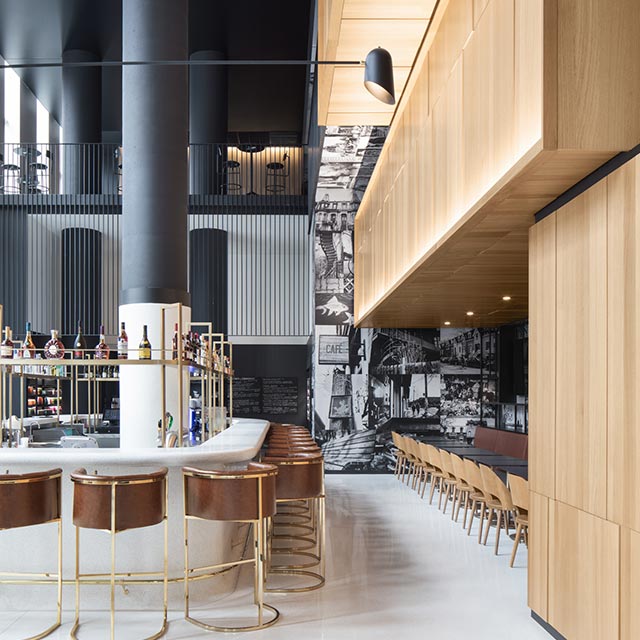
1 – Establish a working culture of learning and development
The nature of the hospitality industry is that employees may see their job position as short term. Invest in developing these positions into long-term careers for employees. These opportunities can include advanced education or training programs focusing on customer service, best practices, management skills and cultural training, recommends Hospitality Magazine.
Le mentorat, le coaching, ainsi que les conférences et les ateliers sur l’hôtellerie peuvent notamment aider les employés à développer leurs compétences et à faire progresser leur carrière. Voyez les désirs et les besoins de vos employés comme une priorité absolue. En investissant dans leur carrière au moyen de l’apprentissage continue, ils investiront dans votre entreprise en retour. En effet, il est prouvé qu’un personnel heureux au travail engendrerait une hausse de la productivité, une meilleure conservation des employés, un environnement de travail plus harmonieux, une meilleure relation de confiance avec vos clients mais aussi avec vos employés
Providing mentorship, coaching, guest speakers, and sending employees to hospitality conferences or workshops can help them further develop their skill sets and advance their job into a career. Address the wants and needs of your employees as a top priority. Investing in the careers of your employees through ongoing learning opportunities will motivate them to invest in your company in return. Indeed, it’s proven that a happy staff would generate an increase in productivity, employees retention, a harmonious work environment, and a better trust relationship with your customers and employees.
2 – Recognize and reward staff for performance
In order to keep motivation high, acknowledge staff members for great performance. A sense of accomplishment can motivate employees to maintain good work ethics and strive to be better. Follow up on recognition and efforts by offering a training program opportunity. Opportunities for promotions can also create positive energy, improve staff-to-customer engagement and promote a driven, hard-working environment but do not forget that promotion is not the only criterion for employees happiness. For underperforming staff, take the time to address their weakness, value and potential. Listen and help them set realistic goals to improve their performance and make a greater impact on the company.
3 – Develop an environment of accountability
Support and a high level of accountability are the backbone of a successful work environment—but remember, it shouldn’t be forced compliance. Meeting team expectations can boost an employee’s motivation and drive to perform well, since their work affects others and poor work lets others down. Even freedom can create a sense of employee ownership. Allow employees to practice independent decision-making skills and offer solutions. Employees may thrive off the additional responsibility, which builds workplace confidence.
4 – Communicate the company’s vision
An engaged employee understands and is a part of the company’s vision, suggests Horizon Hospitality Associates, Inc. Involvement in the greater picture helps employees feel like they serve a purpose beyond just their everyday tasks and responsibilities. Let them know that they play a role in achieving overall business goals and that they contribute to successes.
Companies can communicate these messages through department meetings, one-on-one evaluations and even incentives with messages from management. For example, thank employees with a gift card or lunch outing while mentioning that their efforts impact a certain department goal or the company’s mission.
Your employee’s environment must enable their development and the recognition of their efforts, as well as being rewarding. This way you’ll be able to keep your staff happy and motivated, thus increasing their productivity and their efficacy.
 Log in
Log in









